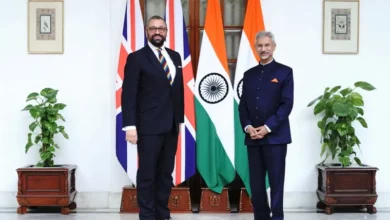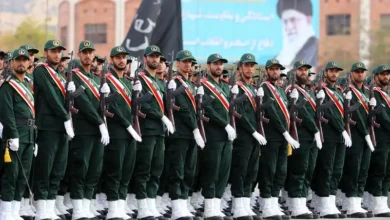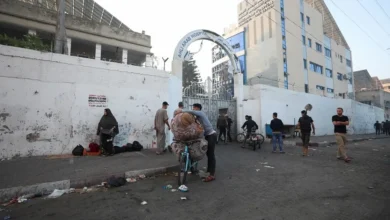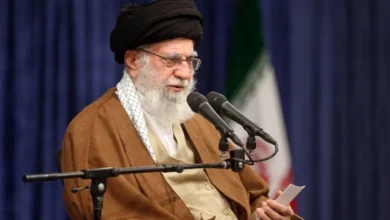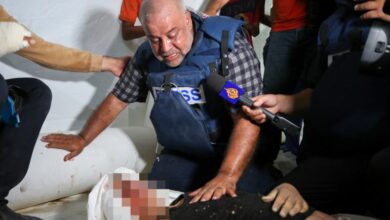‘Never touched a gun’: Colombia fighters step up child soldier recruitment
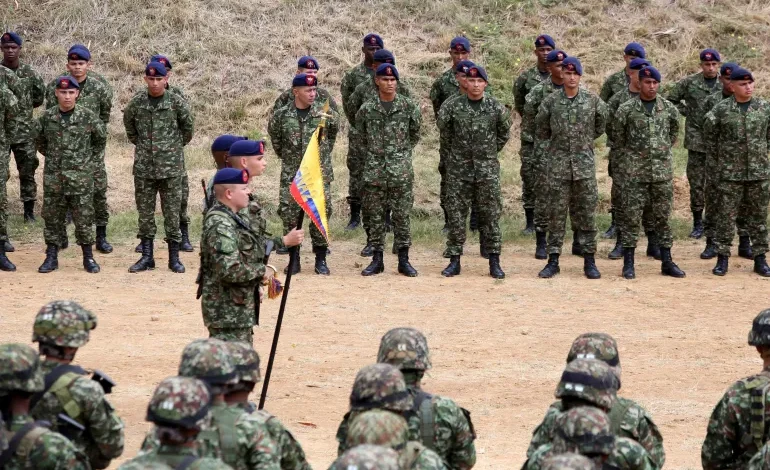
The last time Marta saw her 14-year-old son was three months ago – he was wearing rebel army fatigues and holding a rifle as he marched down the street with the other child soldiers.
She ran to the commanding officer and begged him to release her boy, who had been abducted nine months earlier in the middle of the night from their home in eastern Colombia at age 13. The officer, part of a dissident group of the now-demobilised Revolutionary Armed Forces of Colombia, or FARC, waved her away, threatening to shoot her if she didn’t leave.
“All I do is pray and cry and cry and cry and ask God to get my boy out of there,” said Marta, who asked to remain anonymous in order to share her family’s experience safely.
The 40-year-old mother is not alone. Hundreds of mothers across Colombia have lost children to similar armed groups, either through abduction or coercion.
In its annual report for 2024, the International Committee for the Red Cross (ICRC) warned that Colombia faces its worst humanitarian outlook since the 2016 peace deal with the FARC rebel group. It drew special attention to surging child recruitment by armed groups, finding that 58 percent of those living in conflict zones cited it as the top risk in their communities.
As Colombia’s long-running and complex conflicts continue to escalate, with multiple ceasefires and dialogues between the state and armed groups collapsing this year, criminal organisations increasingly rely on underage soldiers to bolster their ranks.
And there is little being done to stop them.Marta said she is too afraid to report her son’s abduction to the authorities after the armed group made a clear threat when they took him: if she tells the police, they will execute her boy and then come for the rest of the family.
“I have to let him be. I tell myself he is in God’s hands, so as not to put my other children at risk … I have to leave everything in God’s hands,” Marta said. “I don’t sleep, I don’t eat. Sometimes I have no will to do anything, but I have three smaller children with me. And they need me, they need me.”
Gloria, a 52-year-old mother from eastern Colombia who also asked to remain anonymous, shared with Al Jazeera a similar story to Marta’s. In June, her 16-year-old son was taken in the middle of the night and forced to join another armed group.
“I’m desperate, I don’t know what to do,” she said.
Gloria found out about her son’s abduction after receiving a call from a distressed family member. They told her rebel fighters had forcibly entered the house where her son was staying and taken him away.
“They recruited him to fight, and the boy had never even touched a gun,” she said. “He doesn’t know what he’s doing, nothing. At home, we never had any sort of guns.”
Her family fled their rural hamlet in eastern Colombia earlier this year amid intense fighting between the National Liberation Army (ELN) and dissidents of the now-demobilised FARC.
But after arriving at a refugee shelter in the nearest city, they struggled to make ends meet.
Her son tried unsuccessfully to look for work in Bogota and, unable to join his mother at the shelter due to space, he returned to their family home.
“He had to go back [to our hometown], and there they took him by force,” Gloria said.From 2021 to 2024, officially documented child recruitments jumped by 1,000 percent, increasing from 37 to 409 – but the real number is likely much higher, according to the International Crisis Group (ICG).
“We’re seeing a generation of children lost into these networks of criminality for whom they bear little importance,” Elizabeth Dickinson, senior Colombia analyst at ICG, told Al Jazeera.
She authored a recent report detailing the scourge of child recruitment in Colombia. It found that minors are often given the most basic training before being sent to the front lines, used as cannon fodder to shield higher ranks.


